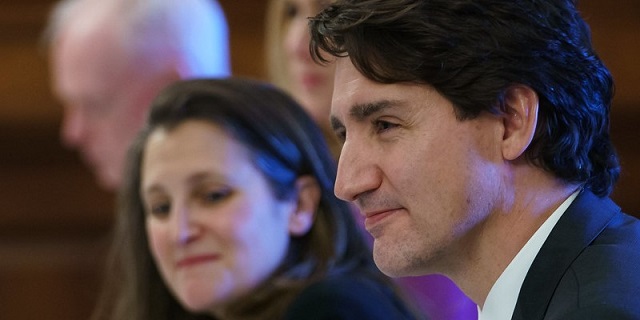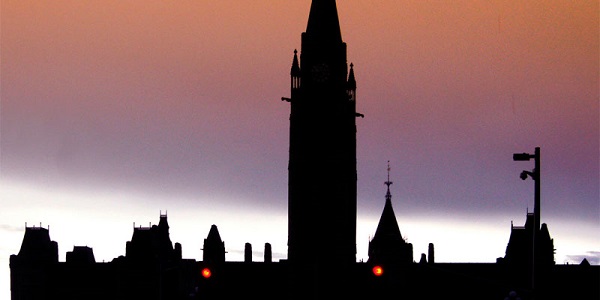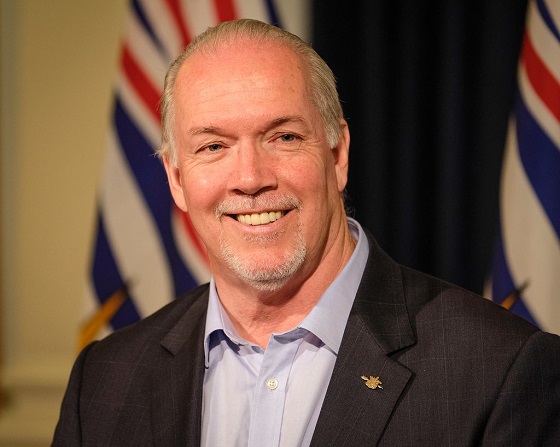National
RCMP to create fake online profiles to track Canadian ‘extremists’: docs

From LifeSiteNews
According to internal documents, the RCMP plans to conduct undercover surveillance on Canadians by creating fake online accounts and tracking what they consider ‘ideological extremists,’ which may include pro-family, pro-life and pro-freedom content.
Canada’s national police force, the Royal Canadian Mounted Police (RCMP), is planning to create fake online accounts to target Canadian “extremists.”
According to an internal strategy document, the RCMP plans to conduct undercover surveillance on Canadians by creating fake online accounts and tracking what they consider “ideological extremists,” which could include pro-family, pro-life and pro-freedom content.
“The RCMP’s lack of a covert online presence was previously highlighted in the OIR (Operational Improvement Review), which recommended that the RCMP develop its own online undercover program to assist with national security criminal investigations,” the RCMP internal document stated.
The document, obtained by an Access to Information request and shared with CBC News, reveals that the Federal Policing National Security is “currently taking steps to address this recommendation through proactive legend-building and backstopping personas, but this work needs to be prioritized and accelerated in order to meet future demand for online undercover activities.”
“Undercover police investigations, among many tools, remain an effective technique to thwart the commission of serious crime and resolve historic offences,” the plan continued. “The focus is on uncovering the truth, verifying facts and determining if someone is involved.”
According to the RCMP, violent extremism is divided into three categories: religiously motivated extremism, politicly motivated extremism, and ideologically motivated extremism.
Ideologically motivated extremis is further categorized into xenophobic violence, gender-driven violence, anti-authority violence, and “other grievance-driven and ideological motivated violence.” The last category includes environmental, animal rights, and “anti-abortion violence.”
While the RCMP’s move to monitor Canadians online is alarming, it is hardly the first time the government-run police force has spied on its citizens.
In 2022, the RCMP acknowledged it uses spyware to turn on or off the camera or microphone of a laptop or phone at will to eavesdrop on one’s conversations without the suspect even knowing it.
The same year, it was disclosed that Canadian Special Forces conducted surveillance flights over the trucker’s Freedom Convoy in February in a spy plane capable of eavesdropping on cell phone calls and tracking small movements, contrary to a military directive banning such flights.
Spying on and tracking Canadians for sharing pro-family and pro-freedom values could prove even more dangerous if Prime Minister Justin Trudeau’s Online Harms bill, which would punish “hate speech” online, is passed.
Bill C-63 was introduced by Justice Minister Arif Virani in the House of Commons in February and was immediately blasted by constitutional experts as troublesome. Put forth under the guise of protecting children from exploitation online, the bill also seeks to expand the scope of “hate speech” prosecutions, and even desires to target such speech retroactively.
Furthermore, the RCMP, like the rest of Canada’s government-run organizations, appears to have been infiltrated by woke activists who label pro-family, pro-freedom, and pro-life causes as “extreme” and “dangerous.”
In 2022, the RCMP issued a 16-page guide suggesting people tell on those who show any signs of “anti-government” or “anti-LGBTQ2” opinions on the internet.
“Some people hold social or political beliefs that may be considered ‘extreme’ or outside mainstream ideologies. Although some ideas alone may be concerning to those around them, it is when a person uses or actively supports violence to achieve ideological, religious or political goals that the police have a role to play,” the guide said.
Business
Canadians should expect even more spending in federal fall economic statement

From the Fraser Institute
By Jake Fuss and Grady Munro
The Trudeau government will soon release its fall economic statement. Though technically intended to be an update on the fiscal plan in this year’s budget, in recent years the fall economic statement has more closely resembled a “mini-budget” that unveils new (and often significant) spending commitments and initiatives.
Let’s look at the data.
The chart below includes projections of annual federal program spending from a series of federal budgets and updates, beginning with the 2022 budget and ending with the latest 2024 budget. Program spending equals total spending minus debt interest costs, and represents discretionary spending by the federal government.

Clearly, there’s a trend that with every consecutive budget and fiscal update the Trudeau government revises spending estimates upwards. Take the last two fiscal years, 2023/24 and 2024/25, for example. Budget 2022 projected annual program spending of $436.5 billion for the 2023/24 fiscal year. Yet the fall economic statement released just months later revised that spending estimate up to $449.8 billion, and later releases showed even higher spending.
The issue is even more stark when examining spending projections for the current fiscal year. Budget 2022 projected annual spending of $441.6 billion in 2024/25. Since then, every subsequent fiscal release has revised that estimate higher and higher, to the point that Budget 2024 estimates program spending of $483.6 billion for this year—representing a $42.0 billion increase from the projections only two years ago.
Meanwhile, as spending estimates are revised upwards, plans to reduce the federal deficit are consistently pushed off into later years.
For example, the 2022 fall economic statement projected a deficit of $25.4 billion for the 2024/25 fiscal year, and declining deficits in the years to come, before reaching an eventual surplus of $4.5 billion in 2027/28. However, subsequent budgets and fiscal updates again revised those estimates. The latest budget projects a deficit of $39.8 billion in 2024/25 that will decline to a $26.8 billion deficit by 2027/28. In other words, though budgets and fiscal updates have consistently projected declining deficits between 2024/25 and 2027/28, each subsequent document has produced larger deficits throughout the fiscal outlook and pushed the timeline for balanced budgets further into the future.
These data illustrate the Trudeau government’s lack of accountability to its own fiscal plans. Though the unpredictable nature of forecasting means the government is unlikely to exactly meet future projections, it’s still reasonable to expect it will roughly follow its own fiscal plans. However, time and time again Canadians have been sold a certain plan, only to have it change dramatically mere months later due to the government’s unwillingness to restrain spending. We shouldn’t expect the upcoming fall economic statement to be any different.
Authors:
Business
Trudeau gov’t threatens to punish tech companies that fail to censor ‘disinformation’

From LifeSiteNews
A report from the House of Commons Heritage Committee claimed that ‘some individuals and groups create disinformation to promote political ideologies including extremist views and conspiracy theories or simply to make money.’
A report from a Canadian federal committee said MPs should enact laws to penalize social media and tech companies that don’t take action to quell so-called “undesirable or questionable” content on the internet.
MPs from the ruling Liberal, New Democratic Party (NDP), and separatists Bloc Québécois party on the House of Commons Heritage Committee summarized their opinions in a report.
“The Government of Canada notes some individuals and groups create disinformation to promote political ideologies including extremist views and conspiracy theories or simply to make money,” reads the report titled Tech Giants’ Intimidation and Subversion Tactics to Evade Regulation in Canada and Globally.
“Disinformation creates ‘doubt and confusion’ and can be particularly harmful when it involves health information,” it continues.
The report notes how such “disinformation” can cause “financial harms as well as political polarization and distrust in key institutions,” adding, “The prevalence of disinformation can be difficult to determine.”
As noted in Blacklock’s Reporter, the report claims that many of Canada’s “major societal harms” have come from “unregulated social media platforms relying on algorithms to amplify content, among them disinformation and conspiracy theories.”
Of note is the committee failed to define what “disinformation” or “conspiracy theories” meant.
Most of the MPs on the committee made the recommendation that Google, Facebook, and other social media platforms, which ironically have at one point or another clamped down on free speech themselves, “put mechanisms in place to detect undesirable or questionable content that may be the product of disinformation or foreign interference and that these platforms be required to promptly identify such content and report it to users.”
“Failure to do so should result in penalties,” the report stated.
As it stands, the federal government under Prime Minister Justin Trudeau has plowed ahead to push laws impacting free speech online.
As reported by LifeSiteNews, Canadian legal group The Democracy Fund (TDF) warned that the Liberal government’s Bill C-63 seeks to further clamp down on online speech and will “weaponize” the nation’s courts to favor the ruling federal party and do nothing but create an atmosphere of “fear.”
Bill C-63 was introduced by Liberal Justice Minister Arif Virani in the House of Commons in February and was immediately blasted by constitutional experts as troublesome.
Jordan Peterson, one of Canada’s most prominent psychologists, recently accused the bill of attempting to create a pathway to allow for “Orwellian Thought Crime” to become the norm in the nation.
Conservative MPs fight back: ‘A government bureaucracy should not regulate content’
Conservative MPs fought back the Heritage Committee’s majority findings and in a Dissenting Report said the committee did not understand what the role of the internet is in society, which is that it should be free from regulation.
“The main report failed to adequately explore the state of censorship in Canada and the role played by tech giants and the current federal government,” the Conservatives wrote in their dissenting report, adding, “Canadians are increasingly being censored by the government and tech giants as to what they can see, hear and say online.”
The Conservative MPs noted that when it comes to the internet, it is “boundless,” and that “Anyone who wants to have a presence on the internet can have one.”
“A government bureaucracy should not regulate which content should be prioritized and which should be demoted,” it noted, adding, “There is space for all.”
LifeSiteNews reported how the Conservative Party has warned that Trudeau’s Bill C-63 is so flawed that it will never be able to be enforced or become known before the next election.
The law calls for the creation of a Digital Safety Commission, a digital safety ombudsperson, and the Digital Safety Office, all tasked with policing internet content.
The bill’s “hate speech” section is accompanied by broad definitions, severe penalties, and dubious tactics, including levying pre-emptive judgments against people if they are feared to be likely to commit an act of “hate” in the future.
Details of the new legislation also show the bill could lead to more people jailed for life for “hate crimes” or fined $50,000 and jailed for posts that the government defines as “hate speech” based on gender, race, or other categories.
-

 Agriculture2 days ago
Agriculture2 days agoOttawa may soon pass ‘supply management’ law to effectively maintain inflated dairy prices
-

 Business2 days ago
Business2 days agoHow big things could get done—even in Canada
-

 Education1 day ago
Education1 day agoToo many bad ideas imposed on classroom teachers
-

 Daily Caller2 days ago
Daily Caller2 days ago‘Fight Fascism!’: Left-Wing Groups With History Of Violent Protest Involvement Recruiting Ahead Of Inauguration
-

 Also Interesting2 days ago
Also Interesting2 days agoFinancial Safety Tips for the Digital Age
-

 Daily Caller2 days ago
Daily Caller2 days agoDemocrat Governors, City Leaders Pledge To Shield Illegal Immigrants From Trump’s Agenda
-

 DEI1 day ago
DEI1 day agoTMU Medical School Sacrifices Academic Merit to Pursue Intolerance
-

 National1 day ago
National1 day agoFormer BC Premier John Horgan passes away at 65







